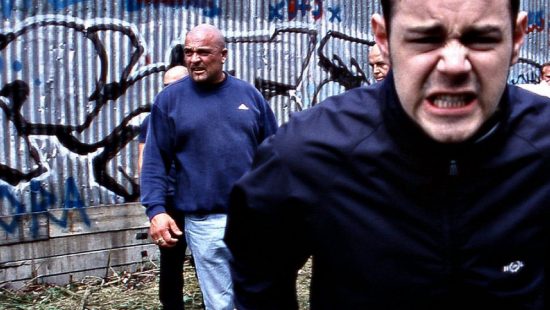Review: The Football Factory (2004)
It’s fair to say opinions on Nick Love’s 2004 film, The Football Factory, are mixed.
On one hand, a contemporary review from Richard Williams of The Guardian decries the film for its “risible plot” and characters “made of cardboard”. On the other hand, Bethut includes The Football Factory in its list of best films ever made about football.
So which one of these points of view is most accurate? Well, I’d say both make pretty good points, although I certainly enjoyed it more than Williams did. Here are my thoughts on the film…
What’s it about?
The main protagonist in the film is Tommy Johnson, played by Danny Dyer. Tommy is a Chelsea ‘fan’ and football hooligan, whose favourite pastimes are getting drunk or high, and having fights in the name of the West London football club.
However, Tommy begins to have nightmares in which he’s severely beaten by a rival ‘firm’, which leads him to question both his dangerous lifestyle and his ties to his friendship group.
What I don’t like about Football Factory
Timing
Released just before Euro 2004, any film about English football hooligans was ill-timed, to say the least. The film’s mix of extreme violence and dark humour drew criticism for the potential to incite English fans to cause trouble in Portugal.
Portrayal of British life
This film isn’t about the British way of life; it’s about the lives of certain violent idiots who give real football fans a bad name and happen to be British.
Lack of football
For a film with football in the factory there’s very little to be seen in the way of actual football. Whilst films like the Damned United or Kenny have successfully intertwined the beautiful fame with the drama surrounding it, the Football Factory focuses purely on hooligan culture.
What I like about Football Factory
The script
The well-paced script is one of Football Factory’s strongest points, as it flows seamlessly from moments of humour to extreme violence without warning. This is one of the techniques Shane Meadows uses in films like This is England – and while Meadow’s film is far superior in every way, this doesn’t detract from novelist John King’s and director Love’s storytelling skill in this film.
The cast and performances
The characters in Football Factory are well cast; Dyer portrays Tommy with the same laddish swagger he’s famous for these days. Neil Maskell is also great as Tommy’s best friend and sidekick in the firm, Rod.
Realism
To put The Football Factory in context, one of the big budget films that came out the same year was Troy, starring Brad Pitt and Eric Bana. Troy cost £125 million to make and the fight scenes were prepared for and choreographed over eight months.
By contrast, The Football Factory cost £500,000 to make and real-life former hooligans were paid to act out genuine conflicts of their past. So while Troy is actually worse for its grandiose choreography, Love’s film is all the better for its CCTV realism. The British film’s fight scenes are grainy, full of nasty noises and genuinely intense – realistic, in other words.
Hidden depths
When you scratch beneath the surface, Football Factory is less about football violence and more to do with the psychology of hooliganism, the corrosive nature of male bonding and discontentment. The film is actually a decent character study that refuses to glorify the characters’ lifestyle.










